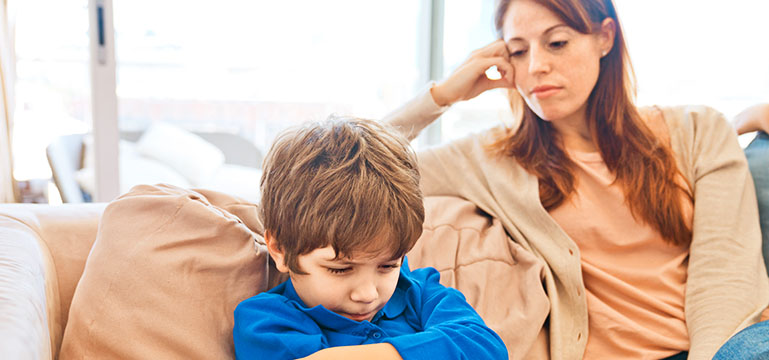Where we are in the world right now is confusing and parents know that as well as anyone. As we near the two-year mark of the pandemic, there are signs of hope but also new challenges. It can be a lot, and it’s natural to want to resist the feeling that things are out of your control. I’d like to suggest instead that, as parents, we work toward something different: acceptance.
This simple, though difficult, idea is explored in some therapy practices, but it’s relevant to the everyday realities of being a parent in 2022. In the midst of global uncertainty and hardship, you still have to parent though daily life, responding to the situations that arise at home. Those of you with young kids may be frustrated by seeing the world open up while your child remains ineligible for the protection a vaccine can provide. Those of you with adolescents may be concerned about the long-term mental health impacts of the pandemic on your teen.
Rather than trying to avoid or deny or work around the situation, ask yourself what you need in order to cope with it. Two practices that are useful for this work are mindfulness and distress tolerance.
Using Mindfulness as a Tool
Mindfulness is the practice of paying attention to the present moment on purpose without judgement. Being able to reach for mindfulness in a moment of fear or anger or discomfort will give you time to figure out how you want to handle a situation, and will show those around you—including your child—that not every response has to be a reactive one.
For example, say you are going to the grocery store with your four-year-old. You want him to wear a mask and you put a mask on as well, but all around him he sees adults and even other children who are not being asked to mask up. In response to this perceived injustice, he starts to throw a tantrum that draws attention.
It’s understandable to feel a wave of emotion in the moment. Your thoughts might be consumed by the fear that other shoppers are judging you, or worry that there is something wrong with your child for behaving this way.
The mindful approach, on the other hand, is it to take a deep breath. Accept the moment you’re in by first realizing that you and your child are both safe physically and emotionally. Try to identify what story you’re telling yourself about the moment. If you convince yourself that everyone is watching you or judging your parenting or making assumptions about your child, it will increase the intensity of the moment. On the other hand, if you tell yourself that many of the others in the crowd have experienced a similar situation and are regarding you with empathy, you can bring humor to the situation and maybe even find a moment of connection.
By using mindfulness to get out of your fear of something, you can make even the most difficult moment more manageable.
Recognizing Distress Tolerance
Reflecting on the time since March 2020, the concept of distress tolerance may resonate more than ever. We all made it through an unpredictable and traumatic situation that our efforts alone could not change or speed up. Distress tolerance is about riding the wave of emotion and finding coping skills which allow you to accept those problems that you can’t solve or control, rather than focusing on all the ways you’d like them to be different. Coping skills can include everything from deep breaths and positive self-talk in moments of tension to daily exercise, text messages with friends who get it or a favorite podcast throughout the day.
As a parent, beyond the pandemic, distress tolerance can help you relate to your child during difficult moments between you, such as when you’re setting a boundary that they may not like. Rather than trying to change their mind or fight with them, accept their feelings in the moment. Let them sit in their discomfort or distress with the limit you’ve created. Remind yourself that your child is safe and this feeling will pass. You don’t have to move the boundary or bend to your child’s will—instead, take a deep breath and feel confident that though they may not get what they want to get or be where they want to be, they will cope and survive.
With practice and intention, these strategies can not only help you move through challenges, but also to recognize and celebrate your accomplishments as a parent. When you have a moment of calm or experience a ‘parenting win’ or feel joy with your child, embrace those feelings as well. Parents are quick to doubt themselves when things go “wrong” but often forget to celebrate when things go right. It is my hope that you can shift that balance, no matter what the rest of the day or week or year brings your way.
Mindfulness and distress tolerance are two of the four skills that comprise Dialectical Behavioral Therapy (DBT). On March 24, the Center for Children and Youth’s Child Training Institute will lead a workshop with Alicia Smart, PsyD, for clinicians focusing on the history of DBT and how it can be used in clinical practice.



